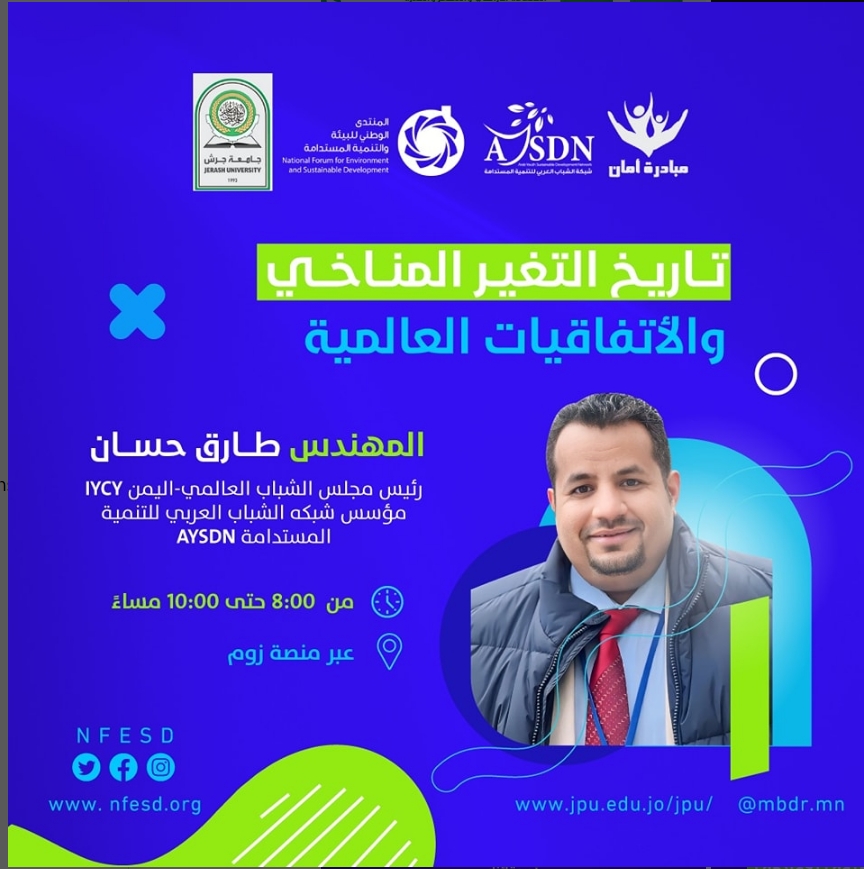Session Four “The History of Climate Change and Global Agreements” in a Qualification Program Session
with Engineer Tarek Hassan .
As part of the comprehensive program to qualify youth for climate work (2024), the fourth session was held on Tuesday, June 4, featuring Engineer Tarek Hassan, President of the International Youth Council – Yemen (IYCY) and founder of the Arab Youth Network for Sustainable Development (AYSDN). The session focused on “The History of Climate Change and Global Agreements.”
Engineer Tarek Hassan began the session by outlining its agenda, which included defining climate change and its history, indicators of climate change, causes of climate change, the greenhouse effect, relevant climate agreements, and an overview of the “LOCY” and “COP.”
Climate change is defined as changes in climatic factors and conditions directly resulting from human activities that release large quantities of greenhouse gases into the atmosphere. Key indicators include the continuous rise in surface air temperatures and the melting of polar ice.
Engineer Hassan shared scientific studies through graphs illustrating the alarming rise in the planet’s temperature over recent decades compared to historical data, highlighting its impact on global vegetation through maps.
He explained the negative repercussions of climate change on communities, which include economic and social pressures, increased air pollution, higher mortality rates, migration, unemployment, loss of political stability, and heightened conflict rates.
Engineer Hassan noted that the “Stockholm Conference” in 1972 marked the beginning of climate action to mitigate climate changes, tracing the evolution of climate activism from that moment to the Paris Agreement in 2015, including the involvement of civil society organizations in 1992 and the Kyoto Protocol in 1997, along with the resulting funding programs for climate action.
He emphasized that the Paris Agreement is one of the most significant accords in the history of climate action aimed at reducing greenhouse gas emissions and adapting to the effects of climate change, particularly its goal of limiting the Earth’s temperature increase to 1.5 degrees Celsius, as well as the mechanisms for monitoring compliance and solutions for aiding developing countries in securing funds for adaptation efforts.
The session lasted nearly two and a half hours, characterized by great enthusiasm and rich discussions filled with questions and inquiries from participants, including academics, specialists, and youth activists in environmental advocacy and climate action.
The comprehensive program to qualify youth for climate work (2024), launched by the National Forum for Environment and Sustainable Development in partnership with Jerash University in Jordan, the Arab Youth Network for Sustainable Development, and the Aman Initiative in Jordan, is the first training program of its kind in the Arab arena.

